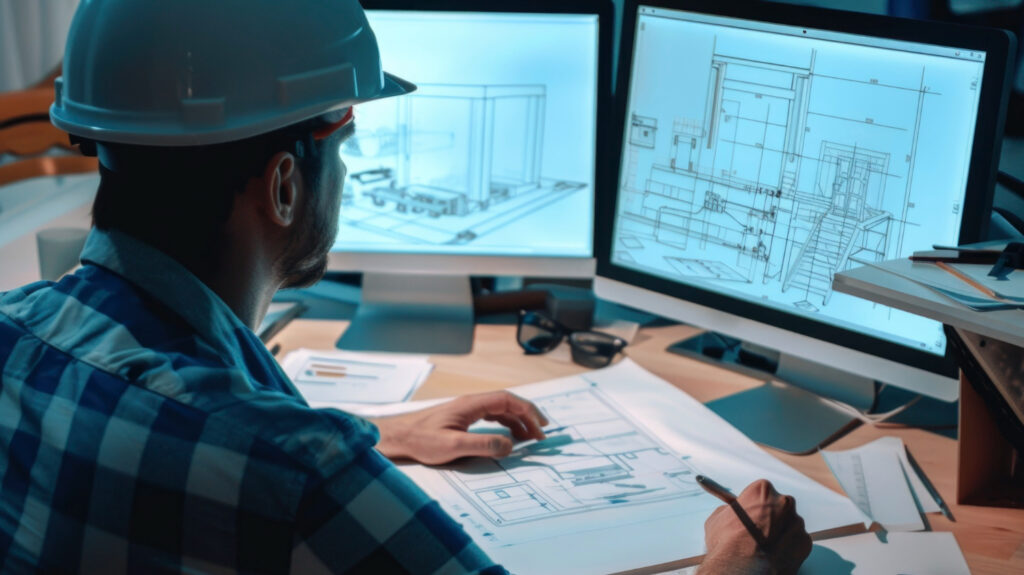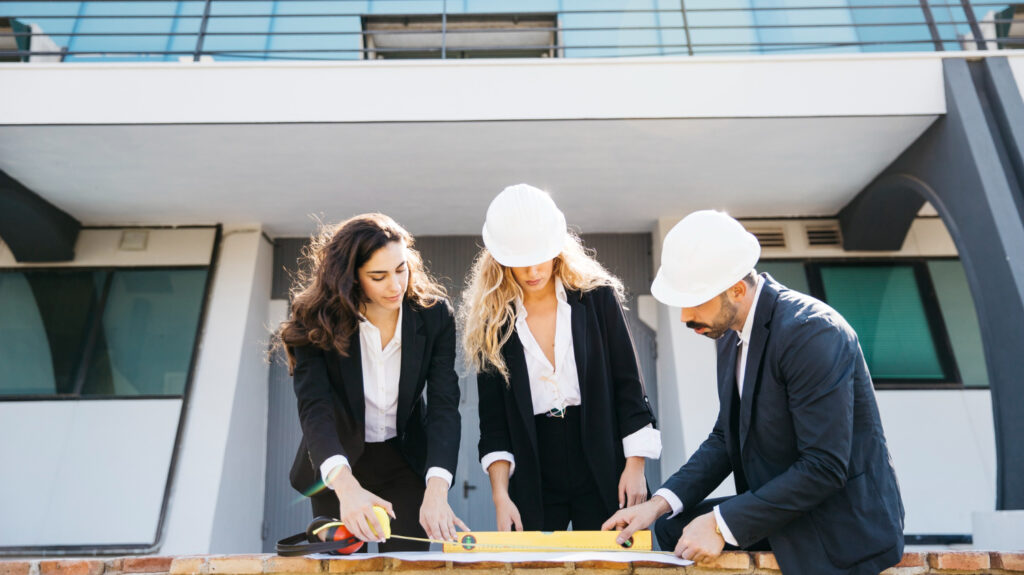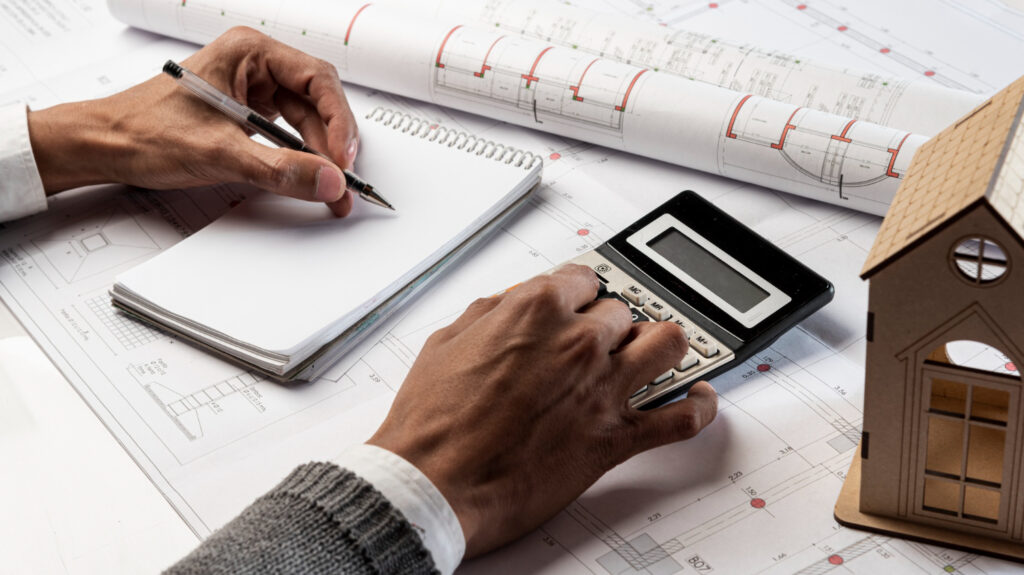Construction Permits and Approvals in the UAE: What You Really Need to Know Before You Build
Let’s Be Honest — Permits Can Be a Headache
Ask anyone who’s tried to build anything in the UAE — from a luxury villa in Khalifa City to a commercial tower in Business Bay — and they’ll probably say the same thing: the actual construction isn’t the hard part. It’s the paperwork.
The permits.
The clearances.
The never-ending trail of stamps, inspections, and approvals.
But here’s the thing — it doesn’t have to be that way. If you know what’s coming, prepare properly, and work with a team that’s done it a hundred times before… the process becomes manageable, even smooth.
Let’s walk you through everything you need to know — without the jargon, without the stress — so you can focus on building, not chasing red stamps.
Why Are Construction Permits a Big Deal in the UAE?
First things first — why all the regulation?
The UAE has grown rapidly over the last few decades. What was once desert is now a hyper-modern skyline, dotted with some of the most ambitious architectural projects in the world. That kind of growth requires strict planning, safety, and sustainability protocols to ensure order, quality, and environmental balance.
Hence, construction permits aren’t just bureaucratic hurdles — they’re a framework that:
- Ensures your structure is safe
- Verifies it’s within zoning and planning limits
- Aligns your build with environmental and sustainability guidelines
- Protects workers, future occupants, and your investment
The Permit Process: A Step-by-Step Walkthrough
Now let’s get into what this process looks like — especially if you’re planning to build in Abu Dhabi, Dubai, or one of the other Emirates.
📍 Step 1: Land Ownership or Lease
You’ll need to first confirm that you own the land (freehold) or have legal rights to build on it (long-term lease). In free zones, you’ll likely lease the plot from the authority.
🗂 Make sure your title deed or lease agreement is up-to-date and registered.
📍 Step 2: Appoint a Licensed Consultant
You can’t just go straight to the authorities. You’ll need to appoint an architectural and engineering consultant licensed in the Emirate you’re building in.
This consultant will:
- Prepare initial drawings
- Apply for preliminary approvals
- Liaise with authorities on your behalf
- Be listed as the official “Engineer of Record”
📍 Step 3: Planning & Zoning Approval
Every project must comply with urban planning rules, including:
- Plot coverage ratios
- Setbacks
- Building height limits
- Parking requirements
- Infrastructure connection guidelines
In Abu Dhabi, this process is done via the Department of Municipalities and Transport (DMT).
In Dubai, it’s managed by Dubai Municipality and sometimes Trakhees (for special zones). Visit the Abu Dhabi DMT eServices Portal
Step 4: Building Permit Application
Once zoning is greenlit, your consultant submits:
- Architectural and structural drawings
- MEP (Mechanical, Electrical, Plumbing) layouts
- Soil investigation reports
- Fire safety plans
- Sustainability reports (e.g. Estidama or Green Building Code compliance)
Each emirate has its own system. Some approvals (e.g. DEWA, Etisalat, Civil Defence) are integrated into the portal; others require separate submission.
Timeframe:
In straightforward cases? 3 to 6 weeks.
In complex or high-rise builds? Budget for 2–3 months.
What Permits You’ll Need — A Quick Checklist
Permit / Approval | Who Issues It | When You Need It |
Land Allocation / Title Deed | DLD / AD Land Department / Free Zone Authority | Before design begins |
Planning & Zoning Clearance | Municipality / DMT | Before detailed design |
Building Permit | Municipality / Trakhees | Before starting construction |
Environmental Clearance (if required) | EAD / Environment Dept | For industrial, coastal, or large-scale projects |
Fire & Life Safety Approval | Civil Defence | Before construction, and again before handover |
Utility Approvals (Water, Power, Telecom) | DEWA / ADDC / Etisalat / DU | Before infrastructure works start |
Completion Certificate (As-Built Approval) | Municipality | After construction, before occupation |
Free Zones: Slightly Different Rules, Same Principles
If you’re building in a Free Zone (like Masdar City, KIZAD, or Dubai South), the process is often centralized — which means the Free Zone authority itself may issue consolidated approvals.
That said, civil defence and utility clearances will still come from relevant external departments.
Common Mistakes to Avoid
Let’s save you some trouble. Here are the missteps we’ve seen first-timers make:
- Submitting incomplete drawings
- Not engaging a licensed consultant early enough
- Assuming approvals are automatic if the plot is approved
- Starting work without the final building permit (risking fines and stop-work orders)
- Ignoring Estidama or Dubai Green Building compliance — especially for villas or commercial projects over 2 floors
What About Fast-Tracking or Phased Approvals?
In certain urgent or time-sensitive builds, authorities may allow phased permits — e.g., permitting piling and foundation work while superstructure approval is pending.
This is usually only granted when:
- You’re using a reputable contractor
- All foundational designs are fully compliant
- Project urgency is well-justified
At PRISTINE, we’ve helped multiple clients achieve early mobilisation through smart phasing — without compromising legal compliance.
How PRISTINE Simplifies the Approval Maze
We get it. As a client, you don’t want to be buried in municipality logins and CAD file uploads.
When you work with us, here’s what we handle:
- Engaging and coordinating with your consultant
- Preparing compliant design packs
- Submitting and following up with every department
- Managing utility NOCs and service drawings
- Guiding inspections and site reviews
You’ll receive regular updates — but never have to chase paperwork.
We do this for one simple reason: you should focus on the vision; we’ll handle the process.
Final Thoughts: Build with Clarity, Not Chaos
Construction in the UAE is full of opportunity — but it’s also governed by clear rules, timelines, and approvals.
You don’t need to fear them.
You just need to respect the process, stay ahead of it, and choose the right partners who’ve done it all before.
PRISTINE has helped clients — from first-time investors to global developers — turn paperwork into progress. If you’re planning your next project, let’s make it seamless, start to finish.
Back to the Pillar Article:
What Is General Contracting? A Complete Guide to Construction Excellence in the UAE



